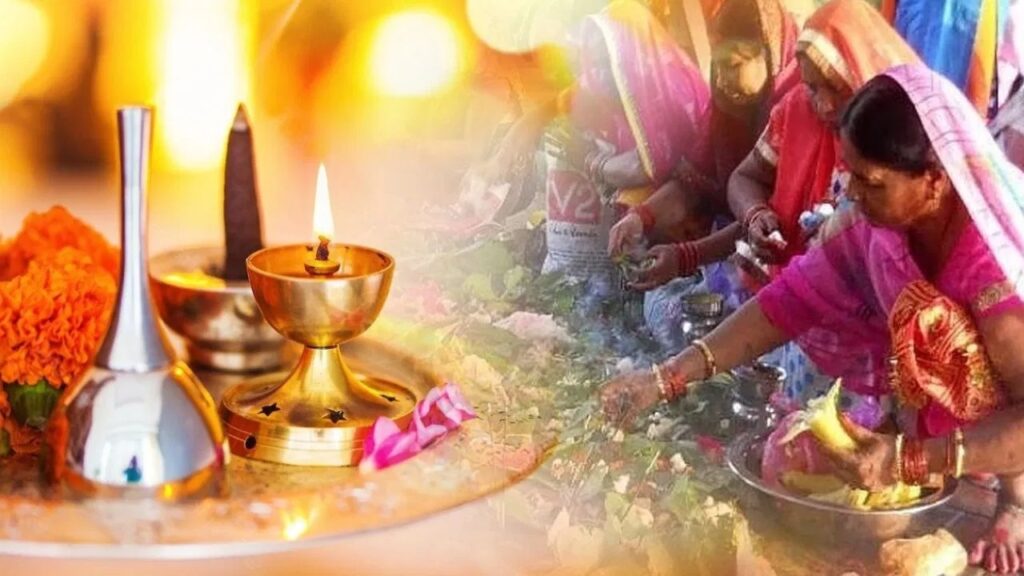Jitiya Festival-Significance, Celebration, Rituals & Importance
Table of Contents

Pic Credit: punjabkesari.in
Introduction to Jitiya Festival
The Jitiya Festival, also known as Jivitputrika Vrat or Jitiya Parva, is a traditional Hindu festival celebrated primarily in the states of Bihar, Jharkhand, and parts of Nepal. The festival is observed by mothers for the well-being and longevity of their children, especially sons. Jitiya is observed on the eighth day of the dark fortnight in the month of Ashwin in the Hindu calendar, which usually corresponds to September or October in the Gregorian calendar.
This traditional celebration is centered around the well-being and longevity of children, with mothers playing a significant role in the observance of various rituals.
Date and Timing of Jitiya Festival
Jitiya is celebrated on the eighth day of the dark fortnight in the month of Ashwin in the Hindu calendar. This typically corresponds to the months of September or October in the Gregorian calendar. The fasting begins before sunrise and continues until the sighting of the moon.
Fasting Rituals of Jitiya Festival
One of the central aspects of the Jitiya Festival is the day-long fast observed by mothers. The fast is undertaken as a form of devotion and is broken only after the moon has been sighted in the evening. This period of fasting is a demonstration of the mother’s dedication to the well-being of her children.
Rituals and Worship of Jitiya Festival
On the day of Jitiya, women perform various rituals and engage in worship. The goddess Jivitputrika is a focal point of devotion during this festival. Women offer prayers for the health, prosperity, and longevity of their children, particularly sons. This worship often involves the recitation of specific prayers and the use of traditional rituals passed down through generations.
Worship of Peepal Tree in Jitiya Festival
In some regions, a distinctive feature of the Jitiya Festival is the worship of the Peepal tree, also known as the sacred fig tree. Women tie a sacred thread around the tree, symbolizing their prayers for the well-being of their children. This ritual is conducted with reverence, and the Peepal tree is considered sacred on this auspicious day.
Significance and Beliefs
The Jitiya Festival is steeped in traditional beliefs and reflects the deep cultural significance attached to the well-being of children. The rituals and customs associated with the festival vary across regions and communities, emphasizing the diversity within Hindu traditions.
Key features of the Jitiya Festival include
- Fasting: Mothers observe a day-long fast, which begins before sunrise and continues until the sighting of the moon.
- Rituals: Women perform various rituals during the day, including worshiping the goddess Jivitputrika and offering prayers for the health and prosperity of their children.
- Worship of Peepal Tree: In some regions, women worship the Peepal tree (sacred fig tree) on this day. They tie a sacred thread around the tree and pray for the well-being of their children.
- Feasting: The fast is broken in the evening after moonrise, and a special meal is prepared. Mothers share this meal with their family, and it often includes items that are considered auspicious.
The Jitiya Festival is deeply rooted in traditional beliefs and is observed with great devotion by mothers for the welfare of their children. The rituals associated with the festival vary across regions, and customs may differ from one community to another.
Conclusion
The Jitiya Festival stands as a testament to the cultural richness and religious devotion found in specific regions of India and Nepal. As mothers observe this day with fasting, worship, and rituals, the festival highlights the importance placed on the health and prosperity of children in Hindu culture. The Jitiya Festival is not only a religious observance but also a celebration of familial bonds and maternal love.



